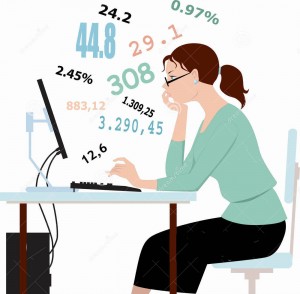Our brains are good at some things but not others. We are terrible at crunching numbers, for example. The brain takes shortcuts and makes snap judgements instead of carefully deliberating the facts, according to Jeff Stibel, a vice chairman of Dun & Bradstreet and a brain scientist.
Business owners should consider experimenting with prices. Thanks to brain science, we now know that even a one-cent change can make a big difference.
 The human brain is likely to round down to make a product appear to be a better value. Being aware of this can make you a more careful buyer. Numbers are an easy place for the brain to take a shortcut. We tend to be great at making estimates but horrible at rounding. When our brains see a price tag with lots of numbers, they automatically estimate, so $4.99 ends up closer to $4 than to $5; $66,999 becomes $66,000 or sometimes even $60,000. Psychologists have known this for decades, and economists now begrudgingly admit it too.
The human brain is likely to round down to make a product appear to be a better value. Being aware of this can make you a more careful buyer. Numbers are an easy place for the brain to take a shortcut. We tend to be great at making estimates but horrible at rounding. When our brains see a price tag with lots of numbers, they automatically estimate, so $4.99 ends up closer to $4 than to $5; $66,999 becomes $66,000 or sometimes even $60,000. Psychologists have known this for decades, and economists now begrudgingly admit it too.
Researchers found that there is a big sales difference between $2.99 and $3, but dropping a product’s price from $2.24 to $2.23 does not yield a measurable sales increase. Relative pricing plays a significant role: A product’s price compared to the products physically surrounding it can impact its sales.
This is why gas stations not only charge per gallon to the nine-tenths of a cent but also price match to the nearby competitor. The human brain is especially good at making either/or comparisons and especially bad at decimals.
Rounding bias becomes more important for a larger purchase. A $399,000 house is pretty much $400,000, but not in your mind: your brain shortcut system will try to suggest it’s closer to $300,000.
To combat this, physically write down the price on a piece of paper, strike through it, and rewrite the appropriate number by rounding up. The best defense is always a strong offense.